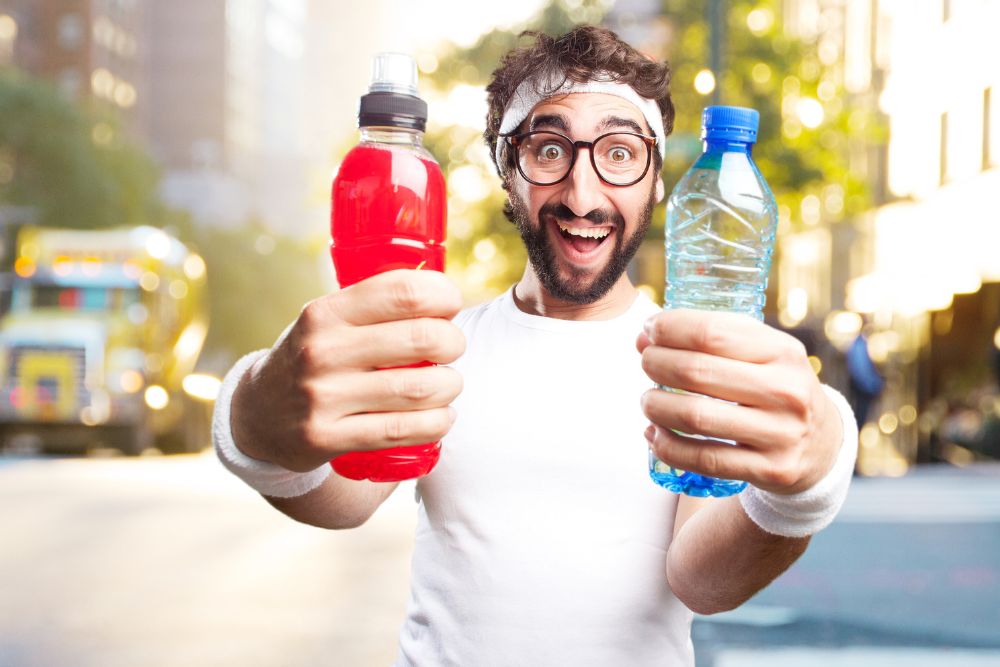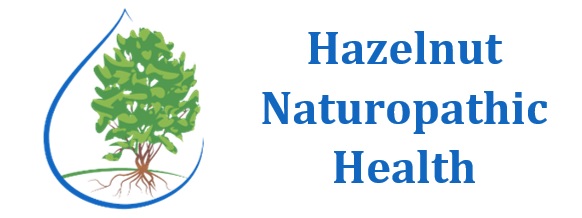
Electrolytes – Are They In You?
Most of us grew up knowing that roughly 60-70% of our body is made of water. You've been told to drink water when it's hot or when you exercise. Suddenly, you learn that water alone isn't enough. Fancy commercials with name-brand products in dozens of colors and flavors burst onto the scene. Drink your electrolytes, and electrolyte drinks are better than water, they say. But is this really true? Are electrolytes crucial to a healthy body? Read on to learn more.
What are Electrolytes?
Electrolytes are substances that, when dissolved in water, create an electrical charge. These positive and negative ions are what allow your body to maintain electrical signaling between cells. To communicate and work effectively, your cells rely on electrolytes to create electrical signals. This is especially important in muscle cells and neurons. Besides playing a role in muscle contraction and nerve impulses, electrolytes also support healthy hydration and pH balance. Electrolytes in humans include sodium, potassium, chloride, magnesium, calcium, phosphate, and bicarbonate.
What Affects Electrolyte Balance?
For the average person, sweat, urine, vomiting, and diarrhea are the primary sources of electrolyte changes. Hormone signals help maintain proper levels of electrolytes. The kidneys help maintain electrolyte balance, holding on to electrolytes in the blood when they are low and excreting them in the urine when they are high. Other organs including the brain, adrenal glands, and to a lesser extent, the lungs also contribute electrolyte balance.
Additionally, not eating enough food or the right foods can affect electrolyte levels. Alcohol consumption, excessive workouts, and eating disorders can all negatively change electrolyte balance.
In general, your doctor will check electrolyte balance as part of routine lab work. They can also check again if you are experiencing gastrointestinal problems, arrhythmias or other heart concerns, lung disorders, endocrine disruptions, etc. Some medications such as diuretics can also affect electrolyte balance and ongoing labs to monitor electrolytes levels may be ordered.
Importance of Electrolytes
Electrolytes are crucial to overall health. When electrolytes are out of balance, symptoms such as headaches, low energy, fatigue, nausea, blood pressure changes, just not feeling well can occur and/or more may occur. Electrolytes also play a role in many health conditions.
For instance, if you are more active, electrolytes are critical to maintaining proper hydration. As you are sweating, electrolytes and water are lost through sweating. We now know water alone is not as hydrating as water with electrolytes. Research shows that trace minerals and bicarbonate help keep water in the proper places and balance within the body.
Electrolytes have also been linked to maintaining a healthy blood pressure. For instance, table salt (sodium chloride) has been found to increase blood pressure when consumed in larger amounts. On the flip side, consuming potassium, calcium, and magnesium may lower blood pressure.
Natural Ways to Support Healthy Electrolyte Balance
Buy Commercial Electrolytes. This is a viable option for those who don't have a lot of time on their hands. Yet, this can be complex in and of itself. There are dozens of brands and products from powders, dissolvable tabs, and premixed drinks you can buy. Most importantly, before you buy any product, make sure it has little to no sugar in it. Generally, these products are best for people who will be sweating for an hour or more in heat or from working or exercising.
Make Your Own. It can be as simple as drinking a carton of coconut water and adding a pinch of Himalayan salt. If you want to make your own liquid or powdered mix, you can also do that. Here is a link to a great recipe from The Planted Runner. To make things easier, we have also included the recipe below.
Ingredients
- 1/4 teaspoon baking soda (307 mg sodium)
- 1/16 teaspoon Morton's Lite Salt (87.5 mg potassium and 72.5 mg sodium)
- 1/16 teaspoon Epsom salt (30 mg magnesium)
- Optional flavors such as lemon or pomegranate juice (you can also choose tea, stevia, or another water enhancer)
Directions
- Measure directly into 16 ounces of cold still or sparkling water or other beverage.
Please note that using the less is more approach is important with electrolytes as it may cause stomach upset. Start with less and increase if needed. Everyone's body chemistry is different, especially while sweating or working out.
Eat Mineral-Rich Foods. There are a variety of foods you can consume to help maintain a proper electrolyte balance. Healthy whole food options include whole milk, yogurt, unsweetened soy milk, butternut squash, spinach, dill pickles, celery, and lettuce. An easy natural option to consider is drinking coconut water with a tiny pinch of Himalayan salt in it.
Support Your Kidneys. Another approach to consider is supporting your kidney health. Your kidneys filter, on average, about 150 quarts of blood daily. By optimizing function, your kidneys can do a better job helping to maintain electrolytes in your body. Herbs to consider include astragalus (Astragalus membranaceus), Cordyceps sinensis, or ginger (Zingiber officinale). A great way to add these herbs to your diet is via tea or supplements.
Don't Forget...
As always, if you have a medical condition affecting your electrolytes, it's important to seek medical advice from your doctor or a professional nutritionist trained on your health disorder. If you are looking for personalized natural options for yourself and your family, consider visiting your local holistic health professional.
Resources:
- Bewick, Kyle. N.D. "What Are Electrolytes?" Cedars Sinai. Revised Oct. 16, 2019. https://www.cedars-sinai.org/blog/electrolytes.html
- Choi D-H, Cho J-Y, Koo J-H, Kim T-K. 2021. "Effects of Electrolyte Supplements on Body Water Homeostasis and Exercise Performance during Exhaustive Exercise". Applied Sciences. 2021; 11(19):9093. https://doi.org/10.3390/app11199093
- Cleveland Clinic. N.D. "Electrolytes." Revised Sept. 24, 2021. https://my.clevelandclinic.org/health/diagnostics/21790-electrolytes
- Khan, Muhammad Ali et al. 2022. "Promoting Plant-Based Therapies for Chronic Kidney Disease." Journal of Evidence-based Integrative Medicine, 27: 2515690X221079688. doi:10.1177/2515690X221079688
- Kotchen, Theodore et al. 1998. "Dietary Electrolytes and Blood Pressure." Circulation, 98(6); 613-617. https://doi.org/10.1161/01.CIR.98.6.613
- Shrimanker I, Bhattarai S. Electrolytes. 2023. StatPearls. Revised Apr. 2023.Treasure Island (FL): StatPearls Publishing. https://www.ncbi.nlm.nih.gov/books/NBK541123/
- Whitbread, Daisy. N.D. "High Electrolyte Foods." Revised May 29, 2023. https://www.myfooddata.com/articles/high-electrolyte-foods.php

Leave a Comment
(0 Comments)